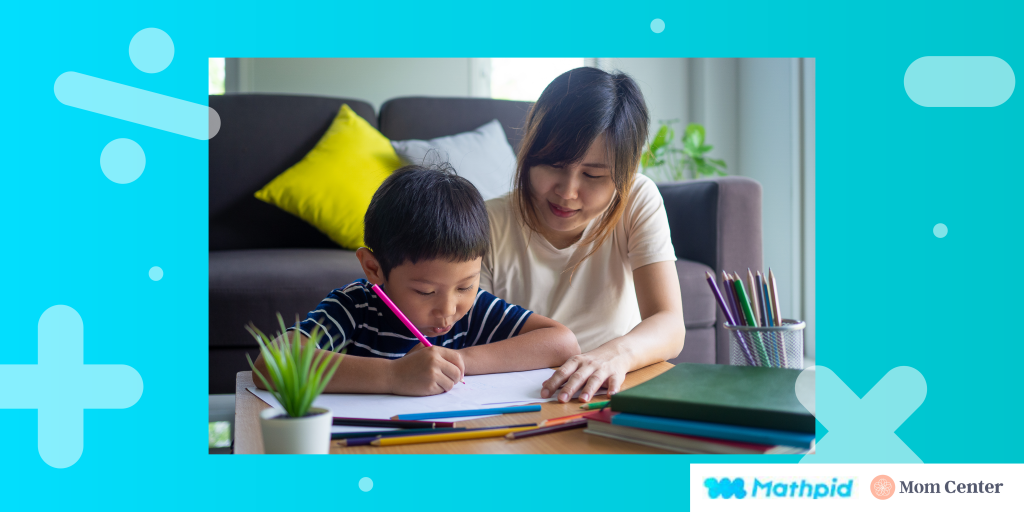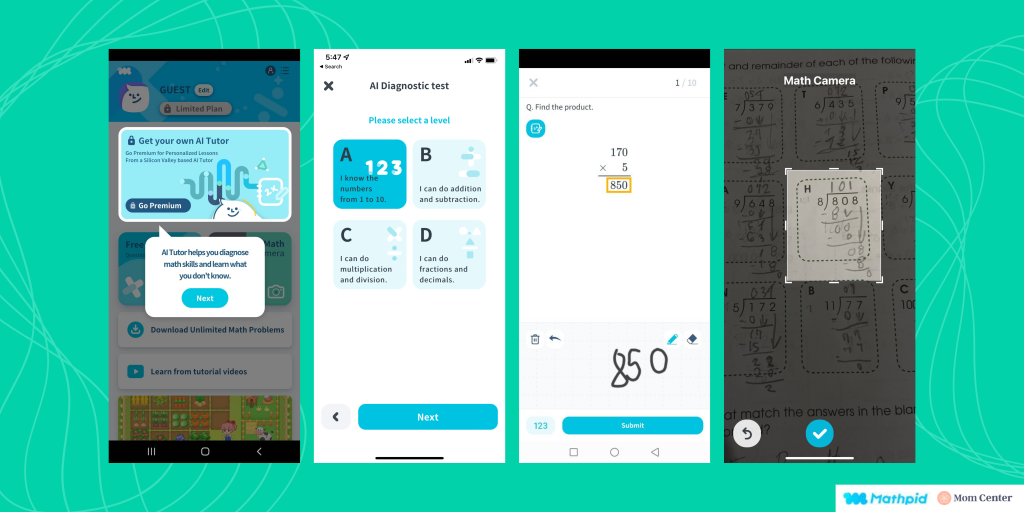I have had my share of parenting fears right from the start of my parenting journey. But it took several years and my child reaching her school years for me to realize one great fear as a parent – one I have had to deal with myself even as a school kid: the fear of math. Math can be simple for some, but it was not and is not for me. I barely scraped through university math (and yes, even if my course was one that only required basic math).
Needless to say, I panicked at the thought of spending the next few years learning math just so I can help my kids with their lessons. Granted, they’re still at a level that my math brain can handle, but what happens in the next few years when they’re tackling more complex math problems? Can I even Google math problems and solutions? And up to what help can I extend that would not compromise their understanding of math?

My child and I are still navigating our way in the math-woods, but here are a few tips that I have found to be helpful in this journey:
- Stay positive about math. And this includes not saying that you’re bad at it – or letting your kids hear you admit it. Yes, this is the first thing I’ve admitted in this article but that was just to give you the context of my relationship with math. But DO NOT tell your kids that “it’s OK if you’re bad at math because I was too,” or something along those lines. Contrary to what we might feel, there is no such thing as a math person, and believing that we are bad at it is putting ourselves at a disadvantage right at the get-go. Letting our kids believe it too can lead to math anxiety and again, hinder their math learning and even relationship with the subject.
- Talk about math every day. But not the lessons. It can be as simple as incorporating it into everyday applications, such as counting money, splitting food, or even in play. Getting our kids to feel comfortable about math and seeing it as a normal part of their world can go a long way in building their confidence in the subject.
- Ask your kids to teach you math. Admittedly, my kids’ math is not my math – or at least, not the same math as I hazily remember it from my school days. So here’s one tip that definitely helped me and hopefully in part, her, in keeping up with her math lessons so far: I ask her to show me how it’s done. This way, she gets to review and practice, I get to see and somewhat learn, and then I can help her (hopefully) later when it gets more complex. And yes, there were a few instances wherein I had to admit that I’m stuck and clueless too. The good thing about these instances is that they proved to be enough of a challenge for my kid to figure it out just enough to explain it to me, which also ultimately helped her better grasp the math concept as well.
- Seek out help. The good thing about modern-day parenting is that help – including math help, can be readily available with just a click or in this case, a tap of a finger.
We might be able to Google the answers to any math problem but doing so will not guarantee that our child will learn how to solve any math problems that come their way, but thanks to the latest Edutech, Mathpid can. Mathpid is a learning tool, basically a math app tutor, that can help us and our kids deal with math problems painlessly. How? Here’s a quick rundown:

- Kids can learn and practice solving math problems on their own, anytime and anywhere as Mathpid is easily accessible on a tablet or mobile device once downloaded. It also offers fun math games and easy-to-download worksheets designed to help kids solve and master math equations.
- Mathpid allows kids to handle learning at their own pace. Certain math problems can take a bit more time to learn compared to others – and this can be challenging in a classroom or tutorial setup wherein the majority of the class dictates the learning pace. So letting your child review and practice her math lessons via Mathpid can help her in subject mastery as well. Mathpid’s AI math comprehensive management system also allows it to identify a learner’s weakness and provide optimized and customized solutions. A parent teaching you math is a good thing, but a parent plus your own AI math tutor is way better.
Another plus for Mathpid is that their AI tutor will personalize the math course for your child after taking the app’s initial math skill diagnostic test. This way, Mathpid can gauge your child’s math knowledge, identify her strengths and weaknesses, and come up with a study plan that will boost and supplement her math learning as needed.
- Mathpid is easy to use and learn from. For me, one of the best things about Mathpid is that it can show your child how to solve any math problem that comes their way. All you have to do is take a photo of it and Mathpid will show you the fundamental concepts of the given problem and how to solve it. Plus, it also provides you with an unlimited source of similar problems – allowing you and your child to practice solving them until it’s as easy as 1-2-3. Way better than Google-ing math if you ask me.
- Mathpid is an effective learning tool – and not just because of the practical reasons we stated above. Studies conducted by Mathpid in the US show that 76% of the respondents say that the app has helped their performance in math and also gave them confidence in answering and solving math equations. At the same time, 96% of the respondents say that using Mathpid as a review tool in school proved to be a big help for students and their parents.
I might still have a few more years of dealing with and teaching math, but I think at this point, I can cross it out of my parenting fears list. Cross it off your list too by accessing Mathpid via the website [ https://mathpid.com/ ] or downloading the math app [ https://mathpid.onelink.me/WXKD/sz10tufh ].
*Published with Mathpid





